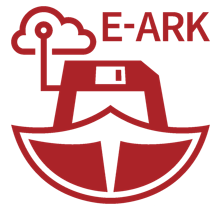25 February 2025
Instituto Superior Técnico (IST) and Online

Luis Faria, eArchiving Initiative
The workshop on eArchiving in Portugal: Case Studies and Strategies for Digital Preservation, held in collaboration with the Portuguese Directorate-General for Books, Archives and Libraries (DGLAB) with former Director General, Pedro Penteado, and the eArchiving Initiative, provided a comprehensive platform for discussing digital archiving and preservation in Portugal.
A key focus of the event was an overview of the current legal framework governing digital archiving, presented by DGLAB. This session outlined essential regulations and compliance requirements, offering clarity for institutions managing digital records. Participants also gained valuable insights from organisations that have successfully addressed the challenges of digital archiving. The speakers shared three real-world case studies and best practices in digital preservation actions, implemented throughout the projects.
The case study presentation began with “O repositório Clínico Digital (RCD) da ULS de São João”, tracing the evolution of the São João’s Hospital Clinical Digital Repository from its inception in 1959 to its latest development in 2016 with the establishment of the Centro de Gestão da Informação (Information Management Centre). Under the guiding principle of “trazer o arquivo clínico para o século XXI” (bringing the clinical archive into the 21st century), this case study highlighted the hospital’s commitment to maintaining a digital repository of clinical records, reinforcing its critical role in the medical field. The repository ensures that healthcare professionals have seamless access to patient histories, a fundamental aspect of delivering accurate and effective medical care. The study also emphasised the strategic approach to archiving: determining which documents to preserve, when to archive them, and how to structure the process. From the moment a patient arrives at the urgent care unit to the final processing of medical discharge documentation, the repository plays a vital role in ensuring the continuity and quality of patient care.
The second national case study, “From Information Production to Preservation in Justice – A Case Study of the Ministry of Justice”, the Portuguese Ministry of Justice demonstrated how it is advancing its digital preservation efforts, as highlighted in a recent case study showcasing its strategy for managing the information lifecycle. Still in its early development phase, the initiative aims to establish a structured approach to the production, dissemination, and long-term preservation of digital records, emphasising curatorial oversight at every stage.
During the presentation, officials outlined the internal framework guiding decisions on what to preserve, how to preserve it, and the broader concerns surrounding digital archiving. The project team also provided insights into the digital preservation system currently in use, detailing the operational processes that underpin their work. A key focus of the discussion was information and infrastructure security, addressing the protocols in place, the individuals responsible for implementation, and the effectiveness of current measures. The initiative reflects a growing commitment to ensuring the longevity and integrity of digital records within the Ministry.
The third national case study, Arquivo.pt, has reaffirmed its primary objective: “to promote the preservation of content available on the national internet, ensuring its accessibility to the scientific community and the general public.” At the heart of the project lies the digital preservation of web pages throughout history, spanning from 1990 to 2025. During the workshop, organisers underscored the initiative’s significance, highlighting its advantages and reinforcing the importance of its core mission in safeguarding Portugal’s digital heritage.
Additionally, experts from the eArchiving Initiative highlighted how their work supports both public and private entities involved in digital preservation. Their presentations addressed common technical issues and showcased tools and methodologies designed to streamline digital archiving processes.
The workshop brought together a diverse group of stakeholders, including municipalities, central public administration bodies, consultants, and technology providers. By fostering discussions between policymakers, practitioners, and industry experts, the event helped build a stronger network of professionals dedicated to advancing digital archiving in Portugal.
Agenda:
- José Borbinha (INESC-ID, Portugal): Opening Remarks – Presentation | Video
- Janet Anderson (Highbury R&D, Ireland): Overview of eArchiving – Presentation | Video
- Cristiane Casaca and Pedro Penteado (DGLAB, Portugal): The national legal framework – Presentation | Video
- Fernanda Gonçalves (Hospital de São João, Portugal): National cases – Hospital de São João – Presentation | Video
- Alexandra Lourenço (SGMJ, Portugal) and Cristina Soares (IGFEJ, Portugal): National cases – Justice – Presentation | Video
- Ricardo Basílio (FCCN, Portugal): National cases – Web Archive – Presentation | Video
- Miguel Ferreira and Luís Faria (Keep Solutions, Portugal): The eArchiving value proposition – Presentation | Video
- José Borbinha (INESC-ID, Portugal): Open Discussion and closing remarks
